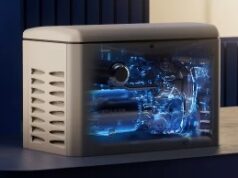 A bit of a controversy has emerged for hotel owners/managers who want to operate a green property but also use carpet extractors that heats water/cleaning solution when performing carpet extraction. This was not much of an issue until the mid-2000s. But then, a major school district adopted a green cleaning program requiring that only cold water be used when performing cleaning tasks, including carpet cleaning. This was based on the conclusion that using cold water was healthier for the environment.
A bit of a controversy has emerged for hotel owners/managers who want to operate a green property but also use carpet extractors that heats water/cleaning solution when performing carpet extraction. This was not much of an issue until the mid-2000s. But then, a major school district adopted a green cleaning program requiring that only cold water be used when performing cleaning tasks, including carpet cleaning. This was based on the conclusion that using cold water was healthier for the environment.
This caused a bit of an uproar for many members of the professional cleaning industry as well as the carpet cleaning industry, who were well aware of the four fundamentals of cleaning:
• Time. Allow enough time for chemicals to dwell on a surface, including carpet, to work effectively.
• Agitation. Action or pressure on a surface loosens soils and contaminants for easier removal. With carpet cleaning, this is often provided through the use of the wand and the pressure per square inch (psi) generated by the machine.
• Chemical. Use the proper chemicals to address the cleaning challenge at hand.
• Heat.
Why is heat one of the fundamentals of cleaning? Studies going back nearly 150 years reveal that cleaning chemical action is increased by a factor of two for every 18 degrees of temperature above 118 degrees F.* This means that heat improves the effectiveness of cleaning chemicals so that they are better able to perform the job at hand: helping loosen and dissolve soils to be removed from surfaces.
Further, tests conducted on behalf of the United States Environmental Protection Agency in the early 1990s confirmed that the use of hot water in the extraction cleaning process reduced the level of biological contamination in carpeting. This means carpets came out not only cleaner, but also healthier after extraction.
Dr. Michael Berry, a renowned expert in the professional cleaning industry and author of the book “Protecting the Built Environment: Cleaning for Health,” compares this with washing greasy hands with soap and cold water. Some of the grease will be removed even without soap, says Berry, “[but] the amount increases in hot water, sometimes tenfold.”
The Real Issue with Heat
Various reasons have been put forth to explain why the aforementioned school district decided only cold water should be used in cleaning. Few of these rationales have, if you’ll pardon the expression, held much water. In an attempt to justify the decision, one green cleaning chemical manufacturer said that when mixing chemicals with hot water, there is a greater chance that fumes can be released, potentially harming the worker and the environment. This can be true for both green and conventional cleaning chemicals.
But, most chemicals used for carpet cleaning are mixed with cold water, making this essentially a non-issue. Also, many cleaning professionals and housekeepers now use systems that automatically dilute chemical with water—no manual mixing is required. Finally, when actually cleaning carpets, most technicians “prespray” carpets with cold-water chemical solutions and do not mix chemical in the tank of the extractor. Again, the concern of fumes is moot.
It is during the actual extraction process when the power of heat plays its most vital role in green carpet cleaning. This is because it improves the effectiveness of the cleaning chemicals and process, as described earlier. This often means less cleaning chemical is necessary and whenever less chemical is needed, green or conventional, there is typically less impact on health and the environment—the goal of green cleaning.
Further, we must always remember another important purpose of all cleaning, green or conventional, is to protect human health. Again, because heat improves the effectiveness of the carpet cleaning chemicals and extraction process, carpets come out not only cleaner but healthier as well.
Other Heat Benefits
And, there are additional reasons why heat is green. Heat can help carpets dry faster, decreasing the possibility for the development of mold or mildew, serious health concerns that can result if carpets take too long to dry. Further, more effective cleaning helps improve the lifespan of carpets, so that they last longer, improving sustainablity and reducing their impact on landfills.
It seems some green advocates have underestimated the importance of heat when it comes to thorough and hygienic cleaning. While there are arguments against its use, hot water clearly has green benefits when it comes to carpet cleaning that may make many reconsider the new cold water only idea.
Mark Baxter is product manager for U.S. Products, manufacturer of hot-water carpet cleaning extractors and other tools for carpet care and maintenance.
*First discovered and reported by Svante A. Arrhenius (1859 1927), a Swedish physicist and chemist.







